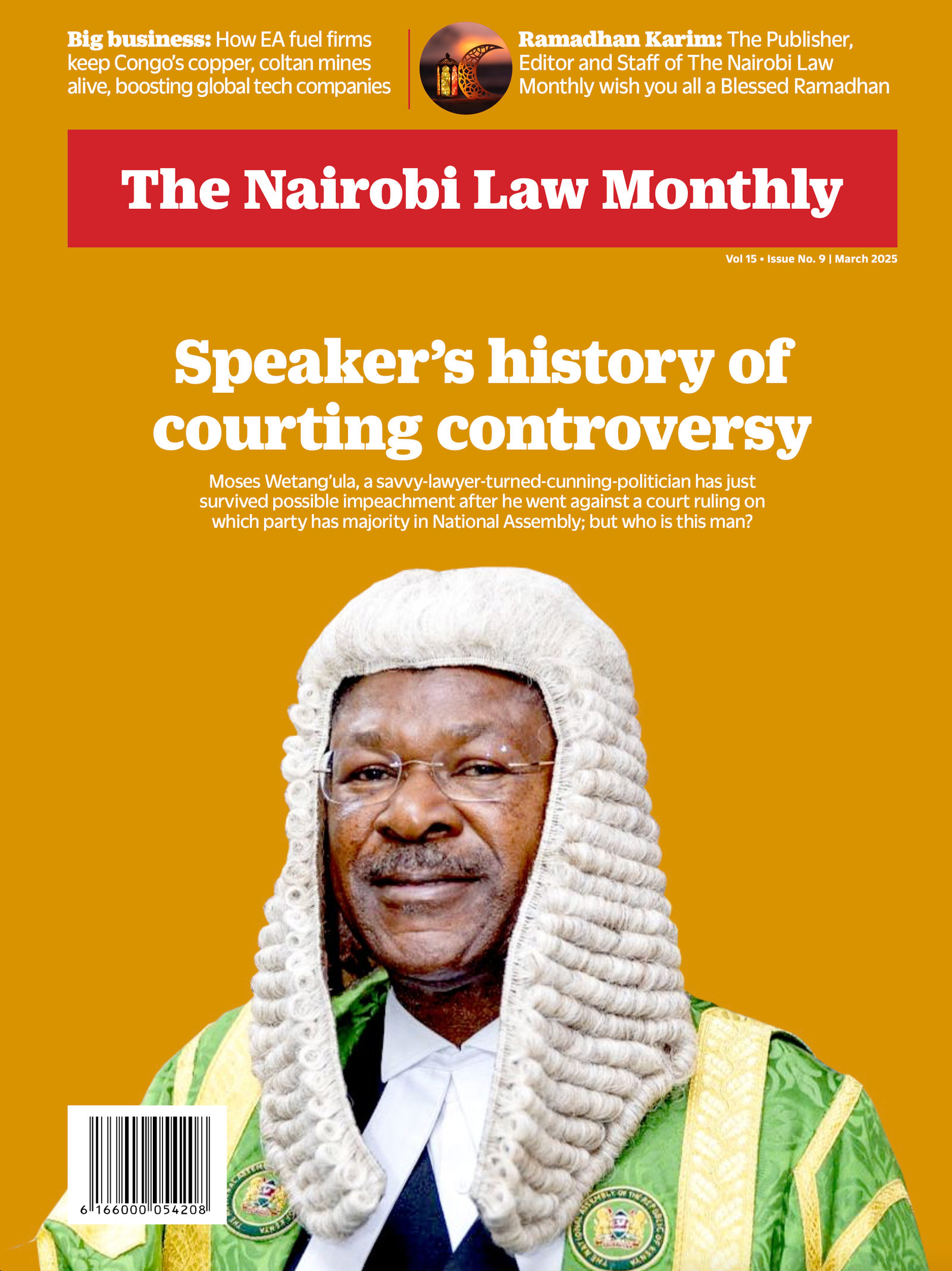Constructive dismissal, also known as constructive discharge or constructive termination, occurs when an employee resigns not because they want to but because the employer’s conduct necessitates it.
For instance, in a scenario where an employer imposes harsh and unfair work expectations on an employee with the aim of forcing them to resign, that resignation may qualify as constructive dismissal.
Constructive dismissal Kenya law
Justice Mbaru of the Employment and Labour Relations Court said in the case of Nathan Ogada Atiagaga v David Engineering Limited, ‘constructive dismissal occurs when an employee resigns because their employer’s behaviour has become so intolerable or made life so difficult that the employee has no choice but to resign. Since the resignation was not truly voluntary, it is, in effect, a termination.’
As that statement implies, you cannot resign over any petty grievance and recover damages under constructive dismissal. In Charles Munyua v Marie Stopes Kenya, an employee left after being transferred from Nanyuki to Malindi and claimed he had been constructively terminated. The Court held that he had voluntarily resigned and dismissed his case.
Neither can constructive dismissal be used by an employee to sidestep disciplinary procedure or imminent termination. Thus, in Herbert Wafula Waswa v Kenya Wildlife Services, where an employee resigned following his suspension, his claim for constructive dismissal failed, with the judge finding that ‘the actions of the [Claimant] did not suggest the plight of an employee being forced out of employment, rather, the portrait is of an employee sabotaging a disciplinary process by clambering out of jurisdiction.’
In another case, Milton Isanya v Aga Khan Hospital, an employee resigned to avoid a summary dismissal. The Court found it was not a case of constructive dismissal because Justice Maureen Onyango held, ‘a constructive dismissal occurs when the employer does not express the threat or desire to terminate employment but frustrates the employee to the extent that the employee tenders resignation.’
What kind of cases then succeed under this doctrine?
Currently, the most authoritative decision on constructive dismissal in Kenya is the 2015 Court of Appeal case, Coca-Cola East & Central Africa Limited v Maria Kagai Ligaga. Here, Justices Visram, Azangalala, and Otieno Odek affirmed that the defining feature of constructive dismissal is that the employee is entitled to leave because of the employer’s conduct. The judges proceeded to find that:
‘Entitlement to leave has two interpretations, giving rise to the test to be applied. The first interpretation is that the employee could leave when the employer’s behaviour towards him was so unreasonable that he could not be expected to stay – this is the unreasonable test. The second interpretation is that the employer’s conduct is so grave that it constituted a repudiatory breach of the contract of employment – this is the contractual test.’
How have our courts applied these two tests?
1. The contractual test
Geoffrey Muriithi Muthee v XPLICO Insurance Co. Limited (2022)
Geoffrey was employed as an accountant in 2014 and rose to become the General Finance Manager. He was entitled to a salary of Ksh 400,000 in his new position. In 2017, the employer revised his salary downwards to Ksh 250,000 without consulting him due to alleged financial constraints. Geoffrey later left his employment and sued for constructive dismissal.
The Employment and Labour Relations Court found in his favour, stating that: ‘Remuneration is undoubtedly one of the most important terms of an employment contract. This Court has held before that the right to remuneration is the most important right of an employee, considering the immense protection that the Employment Act accords, wages, and salaries of an employee. Where an employer substantially alters [including by a significant reduction or change of the manner of payment] an employee’s compensation without their consent, such alteration may amount to a fundamental breach of the contract. An employee whose compensation has been altered can successfully claim constructive dismissal.’
In the end, Geoffrey was awarded Ksh 2, 400,000 for constructive dismissal.
An additional lesson from this case is that the criterion for evaluating the employer’s conduct is objective; the employer’s conduct does not have to be intentional or in bad faith before it can be repudiatory. The Court noted that Xplico Insurance had not proved the alleged financial constraints that led to Geoffrey’s salary reduction but cautioned that ‘this does not mean that existence of financial constraints on an employer, can lawfully lead to a reduction of an employee’s salary without being preceded with consultations, and concurrence of the employee.’
A similar scenario played out in Peter Kaburu Karanja v Kirinyaga Construction, where the court found an employee who resigned due to non-payment of salary to have been constructively dismissed.
Elizabeth Kwamboka Khaemba v BOG Cardinal Otunga High School Mosocho & 2 others (2014)
In 2007, Elizabeth was employed as a school cateress, a position she held until 2013, when she was handed a letter indicating that she would forthwith ‘take a supervisory role in the cleanliness of the boarding area.’ She took this as a fundamental alteration to the terms of her employment contract, resigned, and sued for damages.
The school maintained that its action was justified because the employment contract allowed Elizabeth to take up ‘other duties assigned by the head teacher.’ Justice Helen Wasilwa, however, rejected this argument, reasoning that ‘other duties’ in the context of the contract referred to work related to food, the kitchen, and dining hall areas, not cleaning, which is essentially a housekeeper’s duty.
‘Changing the Claimant’s contract without consultation with her, Justice Wasilwa said, ‘is tantamount to terminating the existing contract and therefore amounts to an unfair and unjustified termination.’
Elizabeth was awarded 12 months’ salary as compensation for unfair termination.
2. The unreasonable test
Max Masoud Roshankar & another v Sky Aero Limited (2015)
A trained pilot, Max Masoud Roshankar left his homeland of Sweden in 2013 to take a job as a First Officer with Sky Aero Limited in Nairobi. One year into the job, he began to encounter frustration when his employer refused to procure a work permit for him. The effect of this omission was devastating. For one, Roshankar needed help to clock the flying hours required for a pilot to renew his licence bi-annually. It also meant missing a part of his earnings that were pegged on the number of flight hours recorded. Worst of all, it made his stay in Kenya illegal.
Roshankar left his employment after serving a resignation notice and sued Sky Aero. Justice Monica Mbaru found that his resignation had been necessitated by the employer, observing that: ‘the work permit… was a tool necessary and vital for continued work by the Claimant within the Republic of Kenya and other countries as a pilot whose nature of work required him to take flights from one county to the other…a situation in the workplace therefore arose, which was created by the employer, and which rendered the continuation of the employment relationship for the Claimant unbearable to such an extent that the employee had no other option available but to resign. This effectively became a case for constructive dismissal.’
The Court awarded Roshankar Ksh 2,700,000 as compensation for his constructive termination of employment.
CNR, FITM & Another (2022)
Over one month, the Claimant, a customer service manager, had been receiving messages of an increasingly sexual nature from her immediate supervisor. She reported the supervisor to her employer, but no action was taken. The supervisor subsequently became hostile, to the point of threatening to demote her. At this point, she resigned and brought an action against the employer.
The Court held that the Claimant had left her employment involuntarily, stating that:
‘The Claimant ought not to have had to choose to resign due to the harassment by the Respondent. In claims where an employee is forced to resign, the employee is deemed to have been constructively dismissed. The Claimant is therefore entitled to compensation for the constructive dismissal.’
Justice Nzioki wa Makau awarded her Ksh 1,144,800
John Kimingi v Damco Logistics Kenya Limited (2021)
Damco Logistics employed John Kimingi in 2008 (then Maersk Logistics) as a Bond Clerk. He served until 2016, when he resigned.
His case was that he had discovered a plot to maliciously discredit his work through an erroneous email to him by one of the company’s executives. The email mentioned that Kimingi owned a truck that the Company irregularly used. According to him, this was fallacious witch hunt. Raising the issue with the Human Resource Office did not help as the matter was not addressed, hence his decision to leave employment. He then sued the company, alleging constructive dismissal.
‘If there was a classic case of constructive dismissal, Justice Nzioki wa Makau said, ‘this is it.’ The judge opined, ‘the employer made it impossible for the contract of service to be performed as expected by placing the employee under a cloud of suspicion.’
Ksh 1, 600,000 was eventually awarded to Kimingi as compensation.
Joseph Matiti Maema & 3 others v Kabiro Builders Limited (2016)
In this case, employees were bullied into quitting. They were called one morning and informed that the company they worked for was closing and that they had to tender resignation letters if they wished to be paid their dues. The distraught employees initially protested this directive but eventually caved in.
Justice Monica Mbaru held that they had resigned not voluntarily, but due to the employer’s behaviour, and had therefore been constructively dismissed.
Conclusion
Constructive dismissal is a unique and useful doctrine as it allows an employee to resign and receive compensation for unfair termination, though the employer did not dismiss them.
If you wish to sue, you must do so within reasonable time after the employer’s breach; otherwise, you may be taken to have waived your right to assert constructive dismissal.
Frequently Asked Questions
What is a constructive dismissal?
Constructive dismissal occurs when you’re compelled to depart from your job involuntarily due to your employer’s actions. The reasons for your departure must be significant, such as non-payment or sudden, unjustified demotion.
What is constructive dismissal in Kenya?
Constructive dismissal in Kenya, like in any other country, happens when an employee resigns due to intolerable or excessively harsh treatment by their employer, compelling them to leave their job. Since the resignation isn’t genuinely voluntary, it essentially equates to a termination.
What are the requirements for constructive dismissal?
For a constructive dismissal claim to be successful, employees must show intolerable working conditions, breach of contract by the employer, the employee’s resignation, and the causal link between the breach and resignation.
Can constructive dismissal be automatically unfair?
An automatic unfair dismissal can arise due to various impermissible reasons, including termination for asserting your legal rights at work (referred to as asserting a statutory right), such as demanding to be paid minimum wage.
— By Newton Arori, Advocate of the High Court of Kenya


